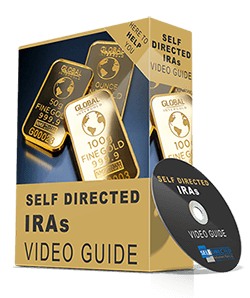An Individual’s financial future significantly depends on creating or taking part in a retirement plan. Knowing all the options for designating a beneficiary is also crucial to the planning.
When picking beneficiaries for retirement benefits, one must take into account the impact of 401(K) inheritance tax and rules, which makes this process distinct from choosing beneficiaries for other assets like life insurance.
This blog post is here to educate you about inheriting an IRA (Individual Retirement Account) or a 401(K) plan. This information is useful to both beneficiary and the person who needs to appoint the beneficiary of their plan.
What Do You Mean by Beneficiary of a Retirement Account?
Your 401(k) beneficiary is the person or organization you designate to receive your account’s profits in the event of your passing. You may specify two beneficiary types:
- Primary Beneficiary: He/she is the person you want to inherit your 401(k) assets first when you pass away.
- Contingent Beneficiary: If your primary beneficiary is unable or unwilling to accept the assets, your contingent beneficiary, or secondary beneficiary, will.
Who Can Be the Beneficiary?
These people/organizations can be appointed as a beneficiary:
- Spouse
When compared to other retirement account beneficiaries, a spouse has the most flexibility. You can generally use the inherited 401(k) from your spouse as your account or take annual distributions (RMDs) in accordance with IRS regulations. - Family Member/Friend/Children
Inheritance of IRA by children or other family members is also common. What you should be aware of and remember is that the money of 401(k) inherited from a parent, close friend, or a family member must be taken out within 10 years. - Trust
The most complicated scenario is this one. The way of inheritance will depend on the kind and conditions of the trust.
What Transpires if a 401(k) is Inherited?
On a 401(k) beneficiary designation form, the account owner designates their beneficiaries. If the primary beneficiary is no longer alive or does not wish to receive the money, it is given to the contingent or secondary beneficiaries.
You must choose how you want to receive your inherited 401(k) funds as the recipient. The choices are determined by some elements, such as:
- The relationship you have with the account owner
- Age of the account owner at death
- When did the account holder pass away
- Your age as compared to the account owner’s age at the time of death
- Your wellbeing
- What is permitted by the 401(k)
What are the Different Ways to Inherit a 401K?
The following options are available to you when taking money out of your inherited 401(k):
- Take the Lump Sum
You can take a lump-sum distribution if you want to take out your whole inherited 401(k) at once. This is straightforward and provides you with a sizable infusion of cash, but you have to pay taxes on it all at once. This is not the best strategy if you want to save taxes. The other alternatives in this list allow you to do so. - Transfer the Funds to Your Retirement Account
If you are sure you wouldn’t need the money sooner, you can transfer the funds to your personal retirement account. This is typically the spouse’s preferred method since it allows them to postpone paying taxes on inherited 401(k) earnings until they withdraw the funds on retirement. - Follow the 5 or 10 year Rule
You can use the five and 10 year regulations. They allow you to withdraw funds whenever you need to, provided that the entire inherited 401(k) is depleted before the end of the fifth or tenth year following the account owner’s passing, respectively.If the account owner passed away in 2020 or earlier, the five-year rule would apply, and if they passed away in 2021 or after, the ten-year rule would apply. - Take the RMD
You also have the choice of spreading the withdrawals out over your lifetime by taking annual required minimum distributions (RMD). However, this facility is limited to certain eligible beneficiaries if the account owner died in 2021 or later. In special scenarios, you can take more than your RMD.
How Are Withdrawals From an Inherited 401(k) Taxed?
The payouts from an inherited 401(k) are typically counted as ordinary taxable income for the beneficiary. This would be the case if your parent contributed to a 401(k) before taxes, which is what most people do. Large withdrawals may result in you moving into a higher tax rate, being subject to the 3.8% Medicare surtax, or losing other income-based tax deductions.
However, if your parent first started contributing to their “designated Roth account” at least five years before you start your withdrawals, dividends from a Roth 401(k) you inherit could be tax-free.
What is the Ideal Time to Withdraw Money From an Inherited 401(K)?
There is no one answer or thumb rule for that. When you should withdraw the funds from your inherited 401(k) depends on many factors, such as current tax rate, account size, your medical needs & financial situation, and any life changes you expect in the upcoming 10 years.
Here are some model strategies which you can apply to save tax. However, you should first discuss them with your financial advisor:
- If your tax rate is about to increase, you can either take out a lump sum and reinvest the after-tax funds in a brokerage account or convert the inherited 401(k) to Roth IRA.
- Are you sure your tax rates will stay flat? In that case, you must let a small account grow and take out the RMD over 10 years from a bigger account.
- If the tax rates are expected to go down, the obvious thing is to wait for them to go down before making any withdrawals.
How Does Inheriting an IRA or 401(K) Work for Different Beneficiaries?
- Inheriting an IRA as a Spouse
You have many alternatives if you are inheriting an IRA from your spouse. You can transfer it to your IRA, take RMDs, or you can open your inherited IRA. You also have the option to withdraw the lump sum amount or convert the IRA to Roth. - Inheriting an IRA as a Family Member
You must take all the money from a retirement account you inherited from someone other than a spouse who passed away after December 31, 2019, before the end of the tenth year after the year of death. Exceptions can be made to this rule depending on your age and health condition. - Inheriting an IRA as a Trust
The IRS regulations (depending on the type of trust) and the provisions of the trust (based on the intentions of the account owner) will both apply to distributions. Each situation’s outcome will be different. Therefore it’s crucial to talk with the trustee and your financial and legal advisors.
Need Any Help? Contact Us Now!
FAQs
What is the 5-year rule for inherited IRAs?
According to the 5-year rule, by December 31 of the fifth year after the initial IRA owner’s passing, you can withdraw money as you like without incurring any penalties.
What is the tax rate on an inherited IRA? Can I avoid tax on an inherited IRA?
You are not subject to taxes if you inherit a Roth IRA. However, any withdrawal from a traditional IRA is subject to ordinary income taxes.
What are the rules for distributions from an inherited IRA?
There are different rules for different kinds of withdrawals. It depends on whether you are taking a 10 year, a 5 year route, or a lump sum. Each scenario implies different rules.
Does an inherited IRA have to be distributed in 10 years?
Yes. By the end of the tenth year after the IRA owner’s passing, the designated beneficiary must liquidate the account.
What happens if I cash out an inherited IRA?
A lump sum distribution is typically not thought of as the best approach to disperse money from an inherited IRA. This is because you will generally be subject to federal or possibly state income tax on a lump sum withdrawal for the tax year in which it is taken.

Rick Pendykoski is the owner of Self Directed Retirement Plans LLC, a retirement planning company based in Goodyear, AZ. He has over three decades of experience working with investments and retirement planning, and over the last ten years has turned his focus to self-directed ira accounts and alternative investments. If you need help and guidance with traditional or alternative investments, call him today (866) 639-0066.




